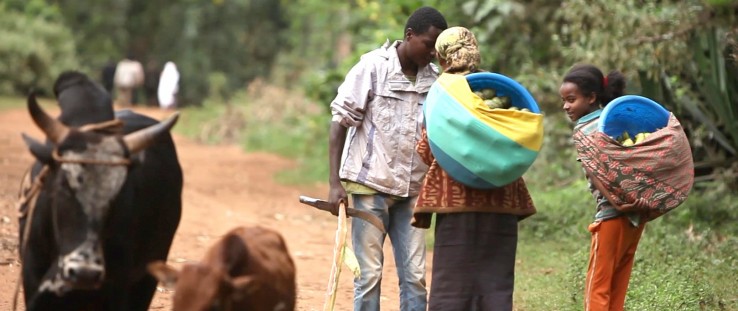 Atsede Moges, an HIV-positive woman with two children, sells fruits by the road with her daughter.
WLP Film Production and Advertising PLC
Atsede Moges, an HIV-positive woman with two children, sells fruits by the road with her daughter.
WLP Film Production and Advertising PLC
 Atsede Moges, an HIV-positive woman with two children, sells fruits by the road with her daughter.
WLP Film Production and Advertising PLC
Atsede Moges, an HIV-positive woman with two children, sells fruits by the road with her daughter.
WLP Film Production and Advertising PLC
When it looked like 8-year-old Haimanot Berhanu’s mother was dying of AIDS, she and her younger brother were not shuttled off to live in another home or orphanage, once a common solution for vulnerable children in Ethiopia. Astede Moges, Haimanot’s mother, was bedridden and facing discrimination and neglect. Moges’ husband ran away after learning about her status. Her father-in-law then ordered her out of the house and he began taking care of the children.
USAID program volunteers found Moges and collaborated with the local health clinic to bring her back from the brink of death.
That was more than two years ago. Today, Haimanot has returned to her normal routine. She attends the same school she had to leave to care for her sick mother and dreams of becoming a doctor. Meanwhile, her mother is earning her own income by selling coffee, fruits and local grains by the roadside and is building a two-room house for the family in Adolla.
“Who could have imagined this change?” asked a now-healthy Moges.
Hundreds of thousands of others throughout Ethiopia have been transformed by the Yekokeb Berhan Program for Highly Vulnerable Children, USAID’s second largest orphans and vulnerable children’s initiative in the world. The program, which began in 2011, is funded by the U.S. President’s Emergency Plan for AIDS Relief and is implemented by USAID partner Pact, a U.S.-based international NGO. Yekokeb Berhan means “light emanating from the stars” in Amharic.
The program works with 40 local civil society organizations and local governments, and is led by Ethiopia’s Ministry of Women, Children and Youth Affairs. At its core, the program helps children in areas most affected by HIV and AIDS by supporting their families.
More than 20,000 trained volunteers identify and assess the needs of highly vulnerable children and their parents or guardians in accordance with Ethiopian Government standards. They then work with local community committees and civil society organizations to develop and implement care plans that emphasize economic strengthening and better parenting skills, plus the coordination of care—linking family members to locally available services, both public and private—rather than focusing on commodities or handouts.
“These children will be inheriting this country, and they should grow up with their needs met like any other child,” said Almaw Mengist, state minister for the Ministry of Women, Children and Youth Affairs. “Yekokeb Berhan plays a major role in facilitating a process whereby the community is learning how to live up to its responsibility to these children.”
The program builds upon lessons learned from past orphaned and vulnerable children programs. It is one of the first programs that directs 75 percent of funding to local entities that help coordinate care.
USAID/Ethiopia Mission Director Dennis Weller said that Yekokeb Berhan’s focus on family resiliency and organized community support is ripe for replication in other countries. “Other countries—Nigeria and elsewhere—are adopting this [approach] and looking at the sustainability of this particular model,” he said.
There are more than 5 million orphans and vulnerable children in Ethiopia, and in 2013, USAID provided services to 537,000 of them through Yekokeb Berhan, more than all the children in the U.S. cities of New Orleans and Baton Rouge combined.
Keeping Families Together
Most children receive three to four types of services annually—health, education and psychosocial among them—out of seven that are recognized nationally, while their parents and guardians, who total more than 237,000, receive training in better parenting skills, gardening, micro-enterprise development and early childhood development. Older children also receive vocational skills training. A total of 1.3 million people—children plus other household members—benefit from this USAID program annually.
“A single program will never have enough resources to address the needs of more than 5 million children at once,” said Samson Radeny, chief of party of Yekokeb Berhan. “That’s why we work closely with the Government of Ethiopia, as well as with dozens of local partner organizations, to build local capacity and expertise to coordinate and provide care for vulnerable children and their families.”
Yekokeb Berhan strives to keep families together.
Before the project came along, Zenebech Zerihun, unemployed, destitute and depressed, sent her eldest daughter to work for another family and was on the verge of giving up her other two children as well.
Kibinesh Teferi, the local governing committee member in the town of Nekemte, remembers her initial encounter with Zerihun: “She was outside yelling at her children. I asked her what was wrong, and she said, ‘I don’t have anything to feed them. I wish they would just disappear from here.’ ‘Why are you saying that?’ I asked her. ‘There are people who can help.’”
Teferi introduced Zerihun to the Yekokeb Berhan program, which provided emergency supplies and guided Zerihun to work in the local market. Thanks to her new source of income, Zerihun’s eldest daughter returned home, and all three children are in school. Girls in Ethiopia who migrate are twice as likely to have HIV as girls who stay at home.
“All my children are with me … we weren’t left to the wild animals, people have reached out to us,” Zerihun said. “I give thanks to God and to Yekokeb Berhan.”
Building Resilient Households
Yekokeb Berhan households fall into one of three economic categories: destitute, struggling and growing. Last year, more than half of all families on the lowest rung moved up a notch, becoming more economically self-sufficient, and almost 20,000 reached the top category or already graduated from the program, meaning they no longer need economic support.
Typical of this last group is Belaynesh Benti, who awakens before dawn each day to set up her street stand in Addis Ababa where she serves a traditional Ethiopian breakfast drink called shameta. She serves pitchers of this thick, homemade barley-and-water mixture to hundreds of customers every day—about 30 cents (six Birr) for a large cup and 15 cents for a smaller one. On an average day, Benti takes in about $30.
Benti, a widow with four children to support, started preparing for her business about a year ago when she first joined a community self-help savings group and learned about micro-enterprise.
The group is one of 1,600 that Yekokeb Berhan has spawned nationwide, and meets every other week to encourage savings, loans, mutual support and business skills. These groups also discuss HIV and AIDS and parenting issues, and provide moral support. With the help of program staff, Benti undertook a local market assessment and prepared a business plan on how to make and sell shameta.
CNN Blog: “I have 29 children”: The “mothers” to Ethiopia’s most vulnerable kids
Volunteer Alemitu Yemes says she has 31 children, four birth-children, two foster children plus her 25 children in Yekokeb Berhan that she freely calls her own. She has also given a small room in her compound, rent-free, to a family of five. Everyone in this family except the youngest toddler is HIV-positive. Yemes is working to keep the children in school and is making sure the family keeps to their anti-retroviral medical regime.
“We don’t want them to be dependent,” she says, “I’m telling them to be self-reliant and we are all working toward that together.”
Armed with her own savings and a $100 loan, Benti bought the ingredients and supplies she needed and set up shop. She has one year to pay off her loan at $15 a month with interest.
“My business is very good,” Benti said. “I can take care of all of my family’s needs now. My children do not need support from anyone else anymore. I am sure I will pay off my loan early. And then I can take out a bigger loan and start a small restaurant of my own.”
Savings groups like hers have already amassed the equivalent of $557,000—the combined savings of nearly 30,000 caregivers, approximately 90 percent women. So far, $482,000 in loans has been given out by these savings groups.
“Yekokeb Berhan has equipped us with so many skills, so people can get away from having to beg,” said Teferi.
The aim is a holistic approach that strengthens the links between local health systems, schools, legal and social support services, microfinance institutions and organizations helping children with disabilities.
“Americans are very charitable people. But this [Yekokeb Berhan] is not charity,” said USAID’s Weller. “It’s an investment in Ethiopia’s greatest asset, its people. These children who are highly vulnerable, if you can give them an extra boost to build their skills, to build their home base so they grow up to be productive and healthy adults, that’s in everybody’s interest, certainly Ethiopia as a partner of the United States, and America’s interest as well.”
Nardos Mengesha is a senior communications specialist for FHI 360 and Lucy Y. Steinitz is a senior technical adviser for Pact.
PermaGardening for Nutrition
While many Ethiopian families begin the path toward resiliency by starting their own small businesses, others cultivate better lives through PermaGardening, a simple type of high-yield vegetable growing that requires a plot only as wide as a few blankets.
A PermaGarden is a small-scale home garden that uses only locally available materials—including tools, seeds and plants—to provide families with a diverse supply of fresh, nutrient-dense vegetables, fruits and legumes on a daily basis. PermaGardening enables households to achieve sustainable nutritional security and to sell any produce that isn’t consumed by the family at the local market for extra income.
PermaGardening can end families’ hunger and malnutrition with plates full of kale, maize, tomatoes, lettuce, onions and beetroot. Increasingly, some families are so successful at PermaGardening that they launch businesses selling what they can’t eat.
“Now, not only are my children getting nutritional support from our garden, but I’m also making my living from it,” said Tsigreda Tafasa, a mother of three in Bishoftu, a city of 200,000 south of Addis Ababa.
With her PermaGardening yield climbing and plans to increase its size, Tafasa will graduate out of the Yekokeb Berhan project soon. But she plans to continue sharing her PermaGardening knowledge with other beneficiaries in her neighborhood.







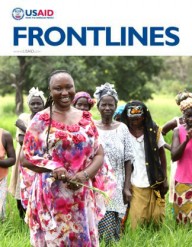

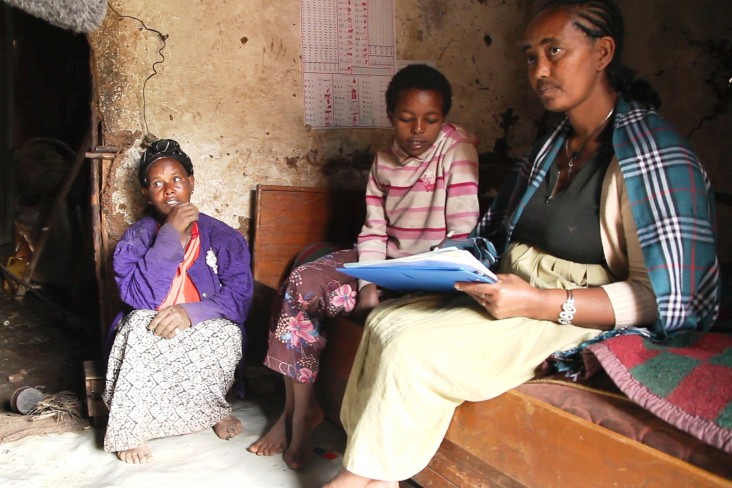
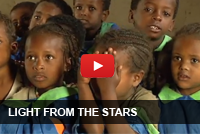
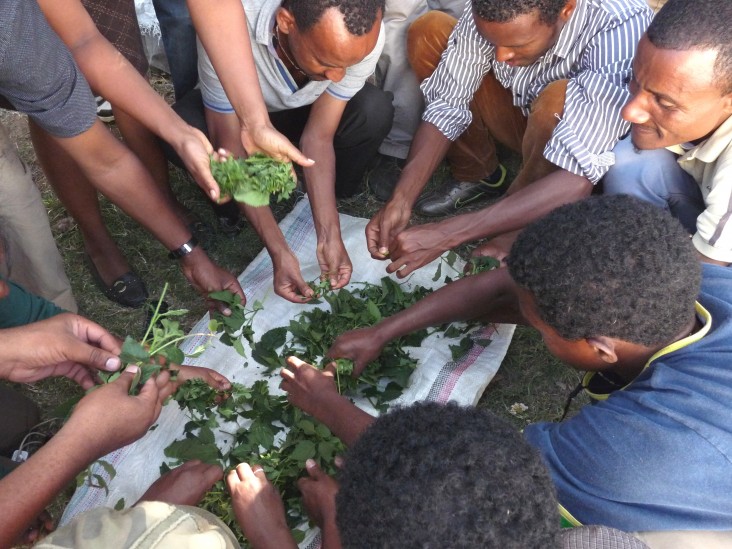
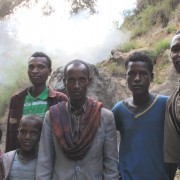
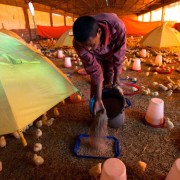
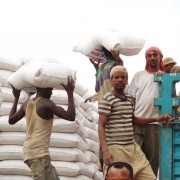
Comment
Make a general inquiry or suggest an improvement.